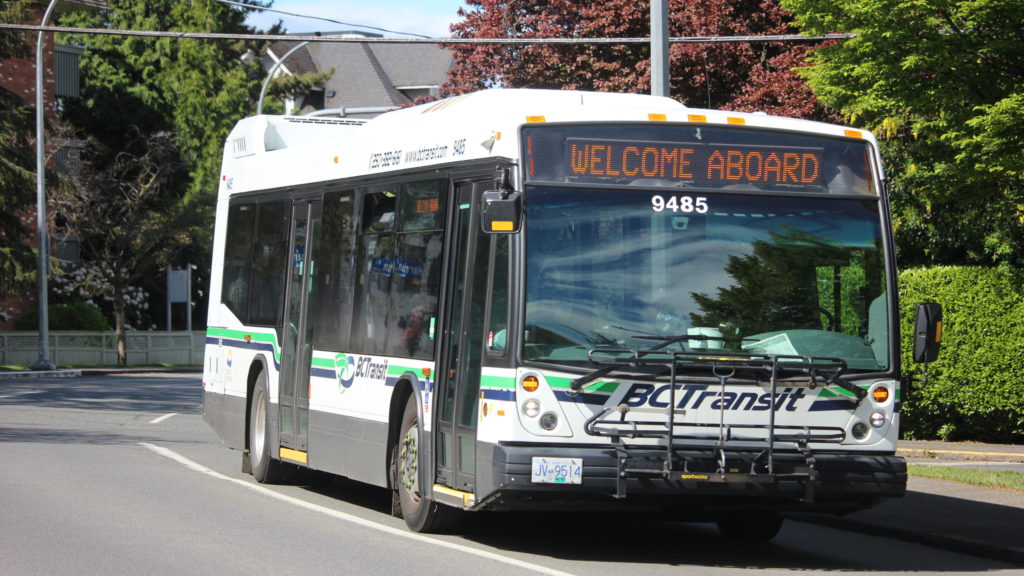
After ridership saw declines to as low as 20 per cent due to the COVID-19 pandemic, three years later BC Transit says ridership has returned to pre-pandemic levels.
In September, across all 57 transit systems overseen by BC Transit, the company says all systems had returned to 100 per cent consistently. However, some are above that level, with Comox Valley, Central Fraser Valley and Chilliwack seeing ridership at 120 per cent of what it was pre-pandemic.
BC Transit tells CHEK News that Comox Valley was able to reach this ridership level despite ongoing labour shortage issues.
“This is a huge accomplishment, and we thank all our customers for their ongoing support of public transit,” said Erinn Pinkerton, president and CEO for BC Transit.
“I’m also grateful for the dedication of our drivers, mechanics and all other transit employees who have worked tirelessly to provide an essential service for our customers.”
According to Rob Fleming, B.C.’s minister of transportation and infrastructure, BC Transit is one of the first agencies in North America to return to pre-pandemic levels.
“BC Transit staff deserve a huge amount of credit for all their hard work and dedication in difficult and uncertain circumstances,” said Fleming.
“Our government provided emergency funding to help our transit providers through the COVID-19 pandemic and avoid any service or transit staff cuts. This investment is now paying a big dividend for public transit as ridership numbers bounce back and keep expanding.”
Just before the pandemic, BC Transit had launched NextRide in Greater Victoria and has continued to expand it during the pandemic. This bus tracking technology is now in 42 transit systems, and Umo has begun being implemented as an alternate fare payment system and will expand to 30 systems in the province.
In 2018/19, BC Transit saw its highest growth in ridership in a decade with 57 million annual passenger trips in the year.
Between Sept. 11 and 15 this year there were 226,764 riders, compared to the same work week in 2019 where there were 226,106 riders.
RELATED: Feds and B.C. contributing to $13.2M transit upgrades in West Shore




